-
![img]()
How to Work from Home with Pets
Zakwan Shah
November 17, 2024
3 min
Pets give us emotional support, company and often times are crucial for maintaining our physical and mental health.
However, they can be a bit of a hassle to take care of, especially when you're busy working from home.
While your pet may be ecstatic about having you around all day, you may not be able to spend all of your time with them.
As convenient as working from home may be, you still need to maintain some facade of professionalism from time to time. And part of that process involves keeping your pets in check.
Here are some ways you can work with home if you have pets running around.How to Work from Home with Pets
Play with Them Before Work

Pets usually crave our attention early on in the morning, so entertain them for a bit before clocking in.
This way, they won't miss you as much while you spend the rest of the day locked up inside a room.
Remember to periodically check in on them throughout the day, too. They are probably confused why you're at home but not spending all of your time with them.
Holding and petting your pets can also help you cope with workplace stresses, so, that's a bonus.Close Your Door

We've seen it so many times on television.
Newscasters presenting the latest updates on current events before their cat jumps in front of the camera.
It can be endearing to viewers, but you don't want any distractions, especially if you're in an important business meeting.
So, make sure you close your door before starting any important work.Keep Them Entertained

Pets will often need something stimulating to play with throughout the day.
A lot of people are very creative with how they entertain their pets while they're away at work.
Pet toys are a hit or miss. Some owners will literally buy an entire cat tree for their pet, and their cat will still go back to their favourite scrunchie.Tire them Out

This isn't as inhuman as it sounds.
Cats are usually mild-mannered and will leave you alone, since they value their own autonomy and privacy.
But dogs require plenty of exercise to work off all that nervous energy. So, wake a little earlier to take them for a brisk morning walk.
It will also give you an opportunity to get in your 100 steps a day. Staying inside all day will do no good for you health-wise, anyway.Get Them A Buddy

If you can afford another pet, get your current one a play buddy, so they don't feel quite so alone.
While pets usually find ways to occupy their time during your absence, they probably won't leave you alone if they know you're in the house.
So, getting them a sibling may distract them enough throughout the day.
But be sure you are mentally and financially ready for another pet. Don't simply get another one just for this sole reason.Conclusion

A pet's life is significantly shorter than a human's.
While they may only be in your life for a short while, to them, you are their whole world.
Take this opportunity to spend more quality time with them wherever possible.
That may sound counterproductive, playing with pets while you work; but as I mentioned, pets can greatly improve your mental health.
They can help reduce your blood pressure, alleviate depression and anxiety, and even reduce cholesterol levels.
So, while it may be necessary to quarantine them while you do important business, don't forget to spend time with them as well.
Disclaimer: The information provided in this article is for informational purposes only and should not be considered as medical advice from Motherhood. For any health-related concerns, it is advisable to consult with a qualified healthcare professional or medical practitioner.
For more insightful stories and fun recipes, stay tuned to Motherhood Story!
-
![img]()
Cancer Surgeon Reveals the Things That You Should Know About Head & Neck Cancer, Especially During Pregnancy
Afina Saleha
April 12, 2022
7 min
According to Cancer.Net, head and neck cancer is the term used to describe a number of different malignant tumours that develop in or around the throat, larynx, nose, sinuses, and mouth. Most head and neck cancers are squamous cell carcinomas.
And it might cause certain obstacles in your daily life. Did you know that head and neck cancer vary in different races in Malaysia?
Sure, proper diets and a healthy lifestyle can help you avoid such cancers, though there might be other factors that can trigger it.
In conjunction with Head and Neck Cancer Awareness Month, we have Dr Ram Kumar Sharma, a Consultant Ear, Nose, Throat, Head & Neck Surgeon at Mahkota Medical Centre.
Dr Ram will share with us his knowledge and expertise relating to this type of cancer.
What are the signs that patients should look out for head and neck cancer? Will there be a visual indication of the tumour, pain in the neck or head etc.?
Greetings! Thank you, Motherhood, for providing me with this opportunity to impart my knowledge and sharing my experience.
Head and Neck (H&N) cancers are the sixth most common cancer in the world today with an incidence of 8.5 for every 100,000 population in Peninsular Malaysia.
Early diagnosis and treatment are crucial. Any delay may lead to more disease spread, poor outcomes and effectiveness of definitive treatment.
What makes it difficult is the close proximity to various important structures in the H&N region.
Clinical presentation of H&N cancers is broadly divided into patient symptoms and signs elicited during routine screening.
A. Patients may present with:- Recurrent unprovoked spontaneous nose bleeds
- Bloodstained saliva/expectorant/secretions from the mouth
- Persistent one-sided ear blockage with or without ringing sensation
- Ulcers that do not heal in the mouth region for more than 2 weeks
- Neck swelling not responding to treatment
- Change in voice, noisy breathing
- Painful and/or difficulty in swallowing
- Headache/double vision/difficulty in opening mouth
B. Signs elicited by Specialist- Consultation and examination specifically related to swelling in the neck regions, ulcers/mass in the mouth
- Diagnostic evaluation of the nose, mouth, throat and voice box either by direct inspection or with an endoscope-aid (camera) in the clinic setting.
What triggers head and neck cancer? And what should a person do to avoid it?

Risk factors for H&N cancer, as with any other cancer, can be classified into Non-Modifiable and Modifiable Factors.A. Non-Modifiable
- Age – more than 50 years
- Gender – a slight male preponderance
- Family history of H&N cancers
- Race – Certain Malaysian ethnicity is prevalent; e.g. Nose cancer amongst Chinese; lymphoma amongst Malays and mouth/tongue cancers in Indians
B. Modifiable
Lifestyle
- Smoking
- Alcohol consumption
- Infection; e.g.: Epstein-Barr Virus, Human Papilloma Virus
Environmental
- Radiation exposure
- Pollution
- Sun-exposed skin
Diet
- Excessive salt/preserved food, betel nut chewing
It is almost impossible to avoid non-Modifiable factors as this makes up our profile and character. However, one can always maintain a healthy lifestyle and be cautious of the Modifiable trigger factors.Where do the head and neck tumours locate? Is it inside the neck and head or outside growth? Or on our bones?
The common sites of H&N cancers are the nose/sinuses, mouth/throat, voice box, ears, salivary glands and thyroid gland.
These may occur with or without associated neck swellings.
If there is a delayed presentation or cancer has spread to adjacent bones, liver, brain, eyeballs or even lungs, then depending on the organ concerned, patients may present with deterioration of the concerned organ function.For this kind of cancer, is surgery necessary? Or is chemotherapy and radiation therapy the only option?
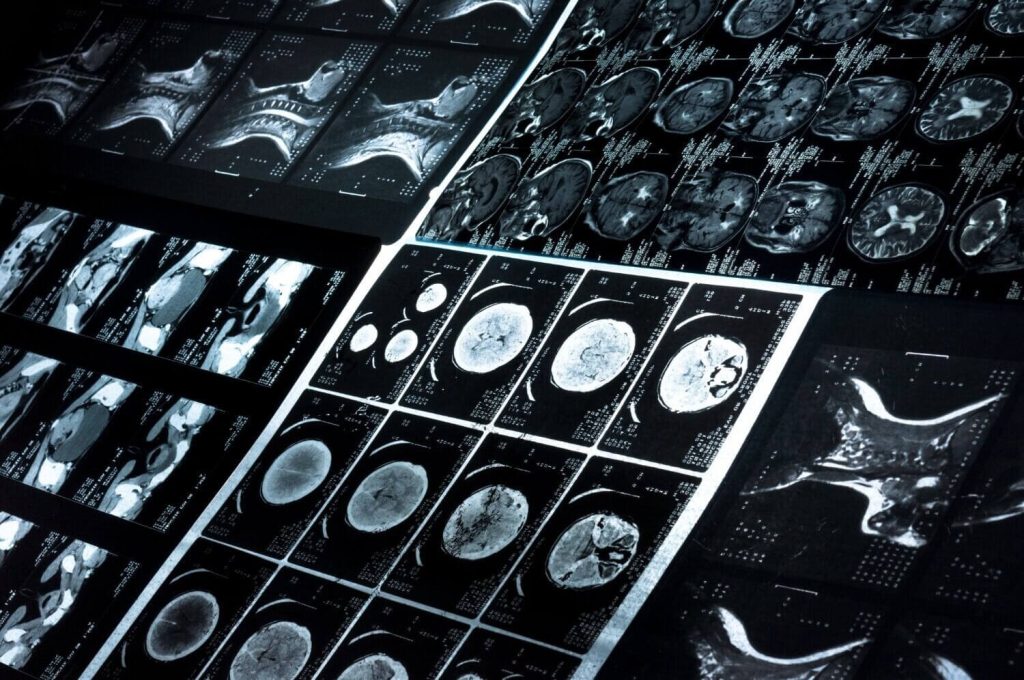
In the event of a high index of suspicion of H&N cancer, a good and thorough history along with a complete physical examination is essential as the initial precursor to arriving at the diagnosis.
Further investigations may include a tissue biopsy to determine the type of cancer.
This may be a benign (non-dangerous type of cancer) or a malignant (dangerous type of cancer).
The biopsy will be complemented with a Computerised Tomography (CT) scan of the Head & Neck region to arrive at a definitive diagnosis.
There are instances a Magnetic Resonance Imaging (MRI) will be helpful to confirm the immediate tissue/organ involved. A whole-body CT scan will confirm the distant spread of cancer.
Once a diagnosis of H&N cancer is confirmed, the patient should be informed of the disease and available treatment options, which may be curative or palliative.
A Multi-Disciplinary Team (MDT) in a Tumour Board will be initiated comprising Ear, Nose & Throat (ENT) Surgeons, Plastic & Reconstructive Surgeons, Anaesthetists, Pathologists, Clinical and Radiation Oncologists.
Depending on the site and H&N cancer being discussed, additional doctors, such as General and Vascular Surgeon, Haematologist, Obstetrician and Gynecologists, Palliative Specialist along with Speech and Rehabilitation Therapist may be included in the discussion.
Curative treatment of H&N cancers usually comprises of Single Modality or Multi-Modality approach following discussion outcomes in the MDT.
Therefore, the patient will be kept informed of the treatment plan, aim and the step-wise treatment approach.
These may include Surgery, Chemotherapy (either before or after surgery) and Radiotherapy.
Management of H&N cancers depends on the following important factors:- Disease/Tumour Factor – type (benign or malignant), site and location of spread with involvement of vital structures.
- Patient Factor – age, underlying medical condition or patient’s general health to sustain treatment which may include surgery, radiotherapy, chemotherapy and/or a combination of all three modalities.
- Accessibility to Clinical Oncologist and the need for Radiotherapy after the operation will be discussed accordingly.
Therefore, a comprehensive multi-disciplinary teamwork discussion of the treatment plan, once the diagnosis of H&N cancer is established, is essential and crucial for the patient.Cancer patients fear losing their organs to cancer as it serves a purpose in your body in the first place. At what stage of cancer needs the lymph nodes to be removed?
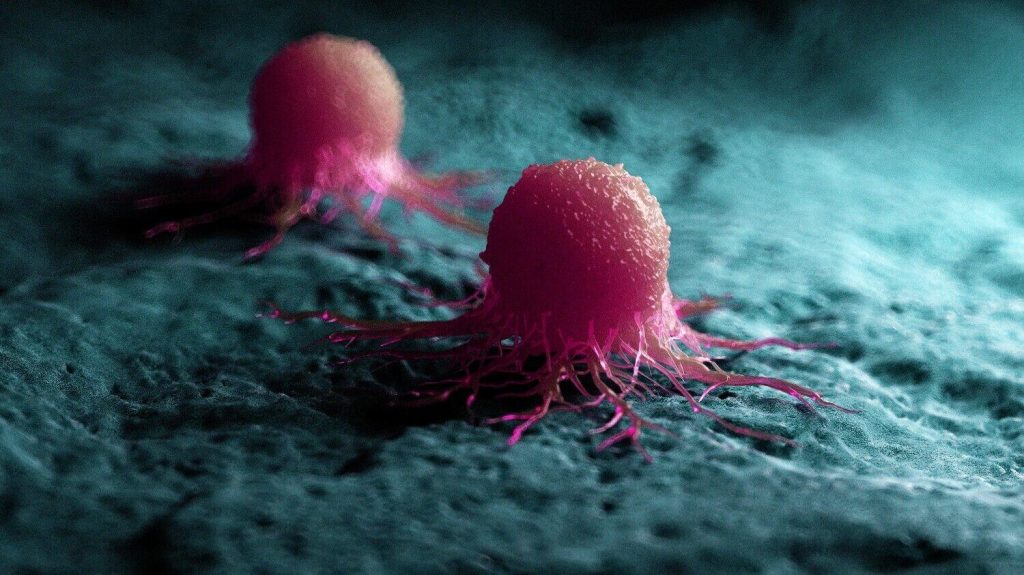
Lymph nodes in the H&N region play an important role as a ‘guardian’ by triggering the immune system.
It is commonly enlarged in malignant cancers. The decision to remove the nodes and concomitant supporting structures will depend on the type of cancer; ie benign or malignant.
All benign cancers will not require lymph nodes to be removed.
On the other hand, malignant cancers may require selective or en-bloc removal of lymph nodes if surgery is the mainstay of treatment.
Again, this decision will be planned accordingly during the Tumour Board discussion and supported by relevant radiological and pathological findings.If the patient opts for surgery to remove the tumour, can you describe what will it be like to recover from the surgery? And will head and neck cancer affects his/her speech or ability to chew and swallow?
The aim of any cancer treatment is ‘tumour-free.’ However, it may cause protracted outcomes depending on the tumour type and site involved.
Tumour Board discussions are essential as post-operative care and reconstructive options will be discussed and would include general and specific advice.Can you get this cancer while being pregnant? If yes, how will it affect a woman's pregnancy? Could the different types of treatment affect women's ability to have children and should they talk with a fertility specialist before any of the cancer treatment begins?

Despite the occurrence of H&N cancers during pregnancy is rare, one needs to be aware of the devastating effects to the mother and pregnancy.
Again, I would like to highlight the importance of MDT discussions. It not only serves as a discussion platform but also ethical dilemmas arising in managing head and neck cancers during pregnancy can be resolved.
The timing of treatment is an important determinant of foetal wellbeing.
Diagnostic and treatment modalities may harm the foetus, while delaying or choosing suboptimal treatment in order to preserve foetal health may worsen maternal outcomes.
A multidisciplinary approach should be adopted to enable parents and clinicians to make the best available decision.Last but not least, what are the dos and don’ts when it comes to cancer, the proper diet and physical care?
Early detection is crucial for a good outcome. However, prevention is better. Therefore, be vigilant on the trigger factors and consult your doctors if you have any symptoms.
Source: Dr Ram Kumar Sharma, a Consultant Ear, Nose, Throat, Head & Neck Surgeon at Mahkota Medical Centre
Disclaimer: The information provided in this article is for informational purposes only and should not be considered as medical advice from Motherhood. For any health-related concerns, it is advisable to consult with a qualified healthcare professional or medical practitioner.
For more insightful stories and fun recipes, stay tuned to Motherhood Story!
-
![img]()
How to Support a Child with Epilepsy
Zakwan Shah
March 30, 2022
6 min
Epilepsy is a neurological condition that presents itself as seizures, and it can either be inherited or developed later in life. The onset of epilepsy is most common in children and older adults, but the condition can occur at any age.
Adults who get epilepsy well after childhood, usually suffered a brain injury or tumour, resulting in defects to their cerebral structure. Other causes can be related to genetic abnormalities, prior brain infection, prenatal injuries or developmental disorders. But in about half of people with epilepsy, there's no apparent cause. In children, the cause of epilepsy may at times be genetic.
A seizure itself is caused by electrical activity in the brain that can be caused by damage or malformation. If left untreated, the illness can lead to death. While it may be a lifelong condition, epilepsy is usually manageable with medication and at-home treatment.
Childhood epilepsy is not uncommon in Malaysia, and there are many treatments available for the condition. However, even with medical intervention, having epilepsy can be a challenging ordeal especially if you're a child. Here are some ways you can support your child if they have this condition:Educate Your Child

Chances are your child may be confused, depressed or angry because of their condition. They may not entirely understand what is happening to them. As a parent, you must explain to them about their condition and what the doctors say can help it. At the same time, assure them that they aren't alone—they have you in their lives to help them through it.
It would help to watch videos with them, read them books and even enrol them in support groups when they're older. This may also be a learning experience for yourself if your child is only recently diagnosed. Knowing you'll actually be learning alongside them may empower your child more, too.
Don't hesitate to tell your child "I don't know" when they ask a question you don't have an answer for. Save up all their interesting questions for the doctor during your child's next appointment. It's best not to look it up online by yourself as you may read the wrong information and end up scaring yourself—and your child—unnecessarily. It won't do your child any good if they are accidentally fed misinformation from you.Notify Their School

Epilepsy can happen anywhere, even at school or daycare centre while your child is playing and learning. You will need to notify your child's daycare centre, preschool, kindergarten or school of their condition. Make sure the teachers in charge know what to do in case of a seizure.
Don't hesitate to send them informational documents, brochures, website links or any supporting literature to help them learn more about your child's disorder. However, if the medication is working, there should be no cause for alarm. But should an episode happen while you're not there, the adults need to know what to do.Learn the Signs
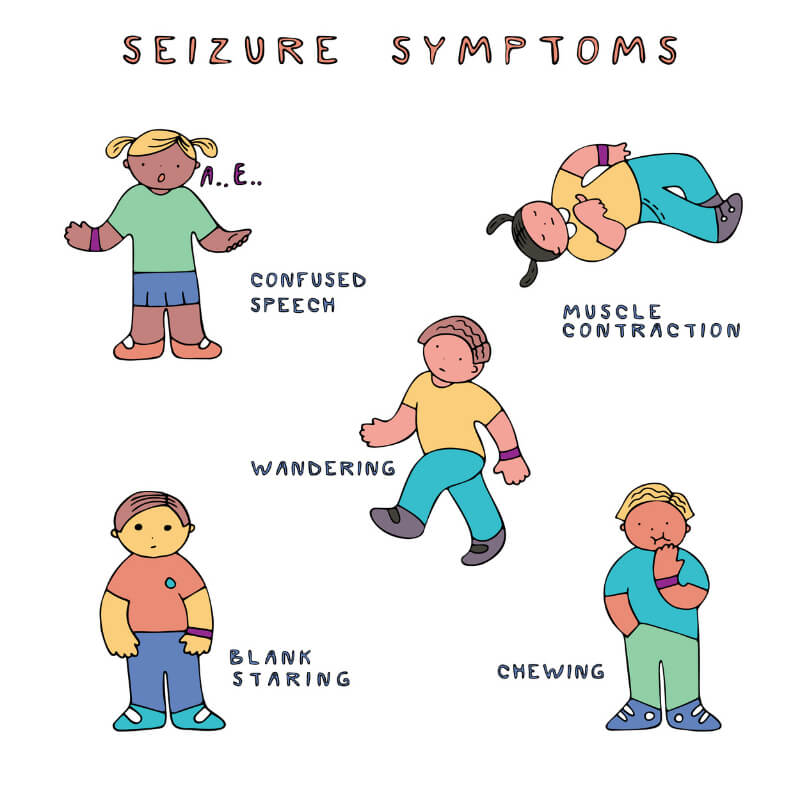
Epilepsy oftentimes presents certain indications before being triggered, and they are often easy to miss. An 'aura' is the term that some people use to describe the warning they feel before they have a tonic clonic seizure. An epilepsy 'aura' is in fact a focal aware seizure. Focal aware seizures (FAS) are sometimes called 'warnings' or 'auras' because, for some people, a FAS develops into another type of seizure.
Notice the warnings that precede a seizure so you can quickly take action. These signs can be something as subtle as losing concentration, being inattentive, having a glassy, faraway look and staring off into space. You should also remind your child, if they are old enough to communicate clearly, to inform you if they feel anything even remotely strange.
Pre-seizures 'auras' may include odd smells, visions, and feelings. It may even result in the victim being unfamiliar with their surroundings. However, your child may not notice these symptoms all the time, especially if the symptom itself confuses them. So, you should always keep weather eye. This may be hard sometimes if you're not around, so be sure to inform other adults who may be taking care of your child in your absence.Monitor Their Medication

If someone has epilepsy, medication is one of the easiest ways to control the symptoms. However, as is the case with most medication, not everyone responds the same way to the same anti-epileptic drugs (or AEDs). Your child's doctor may switch medication if your child's condition doesn't improve, so you have to be patient. But once the doctor finds the right type and dosage of medication, your child's condition should be manageable.
Some children may be too young to consume their medication properly. Pills, either as tablets or capsules, may present a common challenge among children. This is why you should always ask your doctor if the medication comes in syrup form. However, if you're keen on teaching your child early on how to swallow pills, there are some tricks that you can resort to to make it easier for them.Pay Attention to Side Effects

As effective as they are at keeping seizures at bay, anti-epileptic medications may cause a variety of unpleasant side effects. These may include sleepiness, unsteadiness, vomiting, poor concentration, tremors and double vision. Be sure to note down any odd physical or behavioural changes that your child may be experiencing. Side effects are an indication that they are incompatible with their current regime and may need to switch medication.
So, if your child is experiencing any of the aforementioned side effects, quickly notify their doctor and ask for an alternative. They will usually prescribe another type of anti-epileptic drug or adjust the dose on the current prescription. Many factors can come into play when side effects are concerned, including genetic, environmental, gender and even ethnicity.Keep a Journal

Adults can usually monitor their own symptoms without any help, and will usually do so through journaling. As a parent of a young child, you need to do the documentation for them; a doctor may usually ask you to do this anyway. Record the dates and time of each episode, as well as the duration.
A seizure typically lasts anywhere between 30 seconds to 2 minutes. Anything longer than that is concerning. If a seizure lasts longer than 5 minutes, you should immediately call for medical emergency.
Keeping an epilepsy journal can greatly help your child's doctor to determine which medication works best for them. It can also help them make decisions about adjusting the doses depending on the severity of the episodes.Prioritise Aftercare
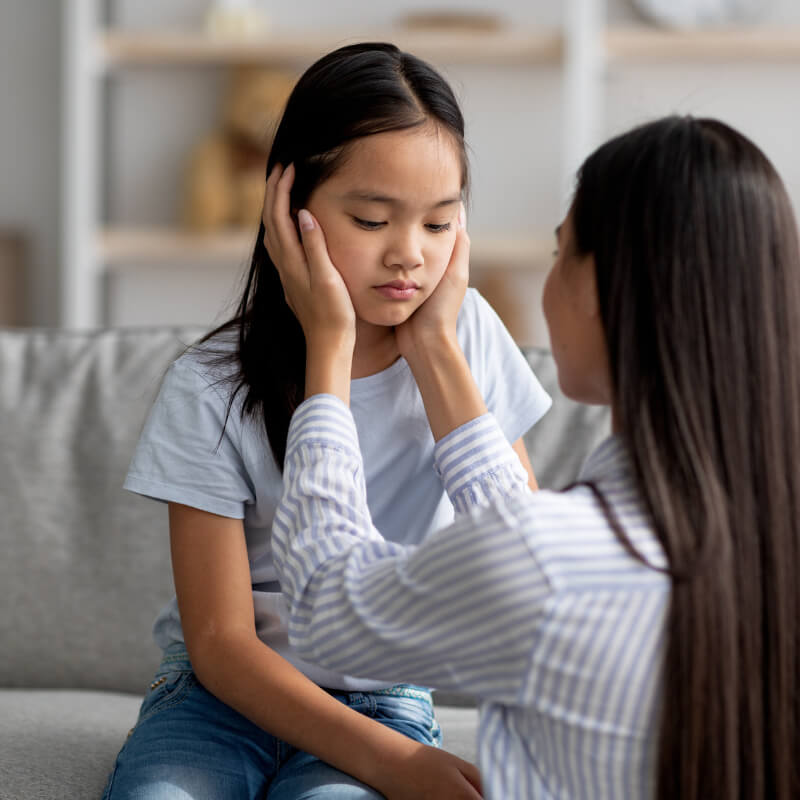
A child will likely be disoriented or scared after an episode. They may also feel fatigued. Besides taking the proper measures to keeping them safe during a seizure, you also need to make sure they're okay afterwards. Once they have regained consciousness, be there at their side with a glass of water, and a moist towel.
Epilepsy may be a lifelong condition, so you may need to be patient when the episodes reoccur. But as long as your child takes their medication on time and gets ample rest, the symptoms should be manageable. Do ensure they are never sleep deprived as this can trigger an epileptic seizure. Some good aftercare activities can be as simple as going outside for a walk, sitting in the garden, watching television or even reading a book to them.Let Them Play

Our first instinct as parents is often the notion of being overprotective of our children. Parents of epileptic children may be extra fearful of letting their child do what other children do. The last thing your kid needs is to feel different. So whenever possible, and when they've been properly medicated, loosen the reigns a bit. Don't coddle or smother your child either just because you may think they're fragile. Children are sometimes surprisingly resilient, and they eventually need to learn to be independent adults.
It's also important not to show distress because your child can sense your anxiety. So always try to be patient and calm—before, during and after a seizure. As far as childhood illnesses go, epilepsy is pretty manageable and may even disappear later in life. Let your child have a childhood; they deserve it.Your Child's Condition Doesn't Define Them
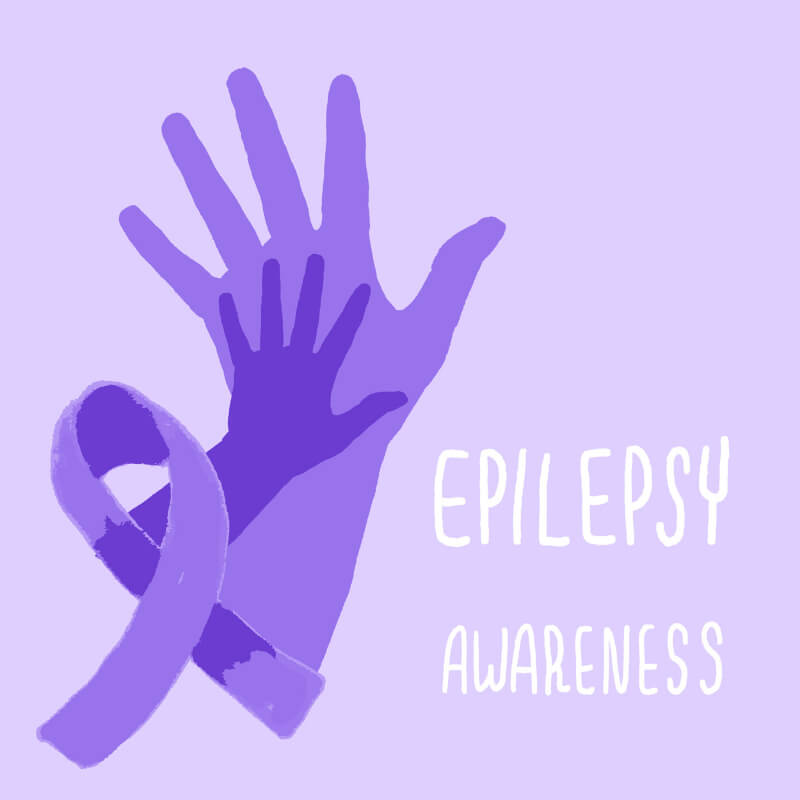
Being the parent of an epileptic child can be challenging and difficult, but it is also a great opportunity for you to forge an unbreakable bond. Childhood epilepsy can be a lifelong condition, or it can go away before your child reaches their teens. Either way, it's important to always be there to help them manage their condition—both physically and emotionally.
However, also trust that even if they don't get better, they'll eventually learn to do things by themselves as they get older. When given the right treatment, your child can lead a long, fulfilling life, regardless of their condition. And that is the most you can hope for as a parent.
Disclaimer: The information provided in this article is for informational purposes only and should not be considered as medical advice from Motherhood. For any health-related concerns, it is advisable to consult with a qualified healthcare professional or medical practitioner.
For more insightful stories and fun recipes, stay tuned to Motherhood Story!
-
![img]()
Various Tax Exemptions That Mums Can Enjoy
Zakwan Shah
March 14, 2022
2 min
Being a parent can put a strain on the wallet, for both stay-at-home and working spouses. Thankfully, the government offers some financial relief for all the mums out there in the form of tax exemptions. If you pay income tax, you can get most of your money back if you have a child. Here's a list of what you can claim exemption for as a parent now that tax season is officially upon us.Dependents

A dependent is basically an individual who relies on you to take care of them, financially, medically, etc. Having a child automatically makes them your dependent, and all expenses for that child can be claimed as a tax exemption. If you have a child that’s under 18 years old you can claim a total of RM2000 in tax relief the next time you file your taxes.Childcare and Kindergarten

School is a rite of passage for all children, but sometimes those annual fees can pile up without you realising. For parents who have already started sending their kids to kindergarten and daycare, more tax exemptions await you. You can claim up to RM3000 of tax relief for your children if they’re 6 years old and below. This can be a much-needed relief for parents who send their young kids to special or private schools.Breastfeeding Equipment
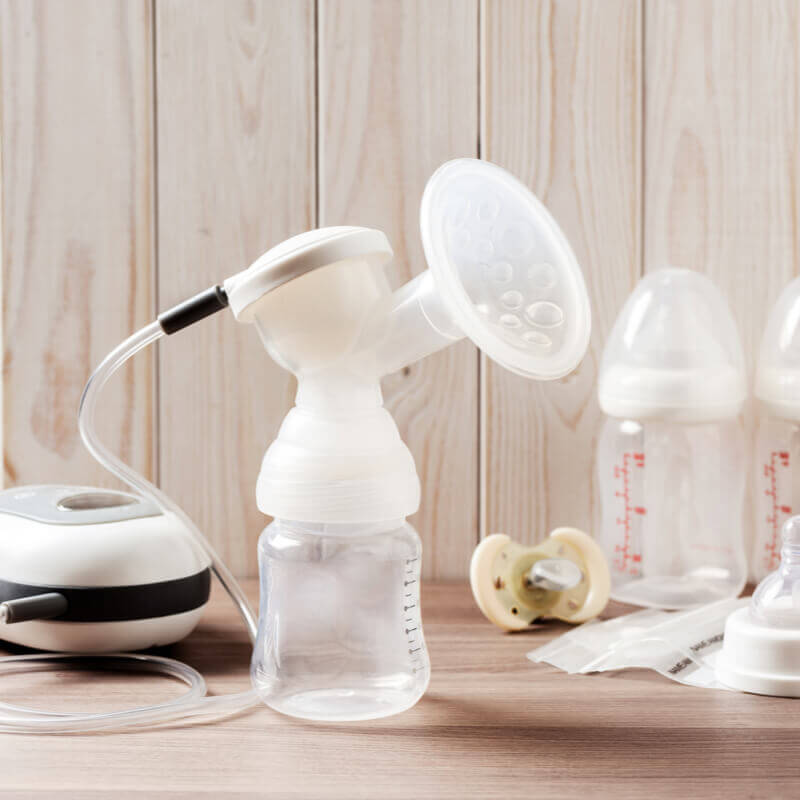
Baby products can be expensive—this is a known fact. But here's the good news for all breastfeeding mums out there: If you're currently breastfeeding a child under 2 years old, you can claim tax relief of up to RM1000 for any breastfeeding equipment. This includes breast pumps, collection and storage bags, carry-ons and other similar or related items.College Fund

Already saving up for your kids’ future college education? If you’ve contributed to the Skim Simpanan Pendidikan Nasional (SSPN), you can claim up to RM8,000 in tax exemptions. With this relief, you can contribute to your child's college education without breaking your bank.Disabled Child
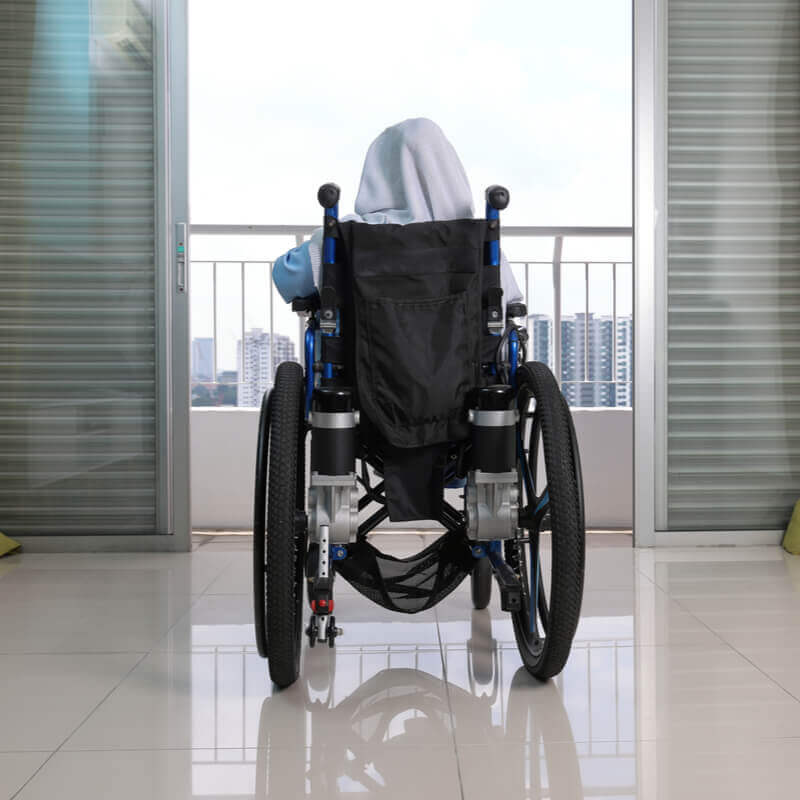
My heart goes out to all the parents with disabled children. You are another level of superhero parents as you continuously care for your special needs child. Thankfully, the government is also understanding of your plight. If you have an unmarried disabled child you can claim tax relief up to RM6000, which will hopefully put your financial worries at rest.Don't Forget to File Your Taxes

Tax season can be stressful, but if you play your cards right, you can get a hefty tax return if you claim all the exemptions mentioned. Parents enjoy more benefits compared to an unmarried person, so it's best that you take advantage of them. That said, remember to file your taxes at your earliest convenience. Be sure not to miss the deadline, mummies—you wouldn't want to miss out on claiming the various tax exemptions offered to you either, right?
For more insightful stories and fun recipes, stay tuned to Motherhood Story!
-
![img]()
AskMeDoctor! Season 4 Episode 4: Your Vaginal Health: What's Going On "Down There"?
Afina Saleha
March 15, 2022
8 min
Vaginal health is an important part of a woman's overall health as vaginal problems can affect your fertility and so much more.
Ongoing vaginal health issues can also impact your self-confidence. So, it is vital for every woman to know the signs and symptoms of vaginal problems and what you can do to protect your vaginal health.
Today, we have a special guest to educate us on that! She is an Obstetrician and Gynaecologist from Sunway Medical Centre, also a mother of two boys, Dr. Janani Sivanathan!Q1: How can we differentiate the normal vaginal discharge and the others?

Dr Janani: Women in the reproductive age group will have a physiological discharge. So this is a normal discharge that happens during the cycle.
As soon as the periods are over, probably there will be like yellowish discharge, then the discharge will stop and in the mid of the cycle, the discharge becomes more watery and clear and it’s more copious in amount.
And a few days after that, it will become a bit thicker and white mucus. And after that, it might be a bit yellowish and then you will get your periods.
So, physiological discharge is normal and this is related to hormones.
Mostly, because of the effect of oestrogen on the vagina. So, the vagina is rich in glycogen and is converted into lactic acid. So, that’s why the vaginal pH is acidic at less than 4.5 pH.
It’s called the normal flora which is normal.
So, when there’s an imbalance, there’s a tip in the pH, which can be caused by:- Any illness
- Immunocompromised
- Long term antibiotics
- Contraceptive pills
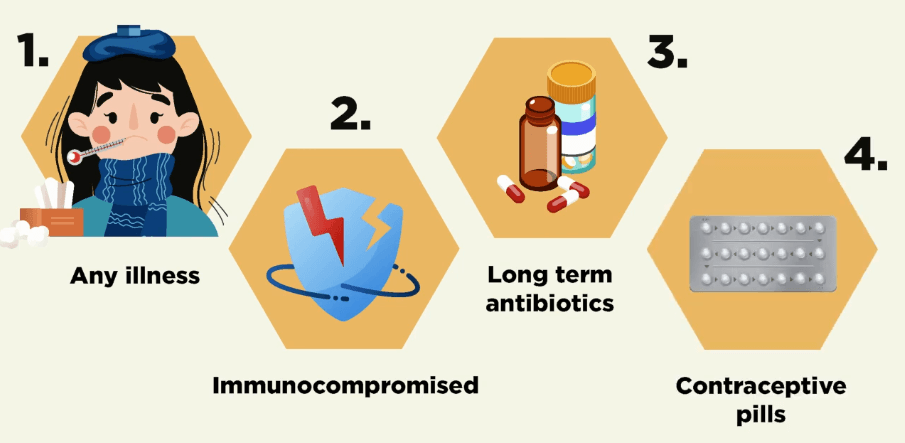 Factors That Can Cause Vaginal pH Imbalance
Factors That Can Cause Vaginal pH Imbalance
And because of that, the bad bacteria starts growing. Because the pH has shifted.
And so, the abnormal vaginal discharges occur."So, What Is Abnormal?"
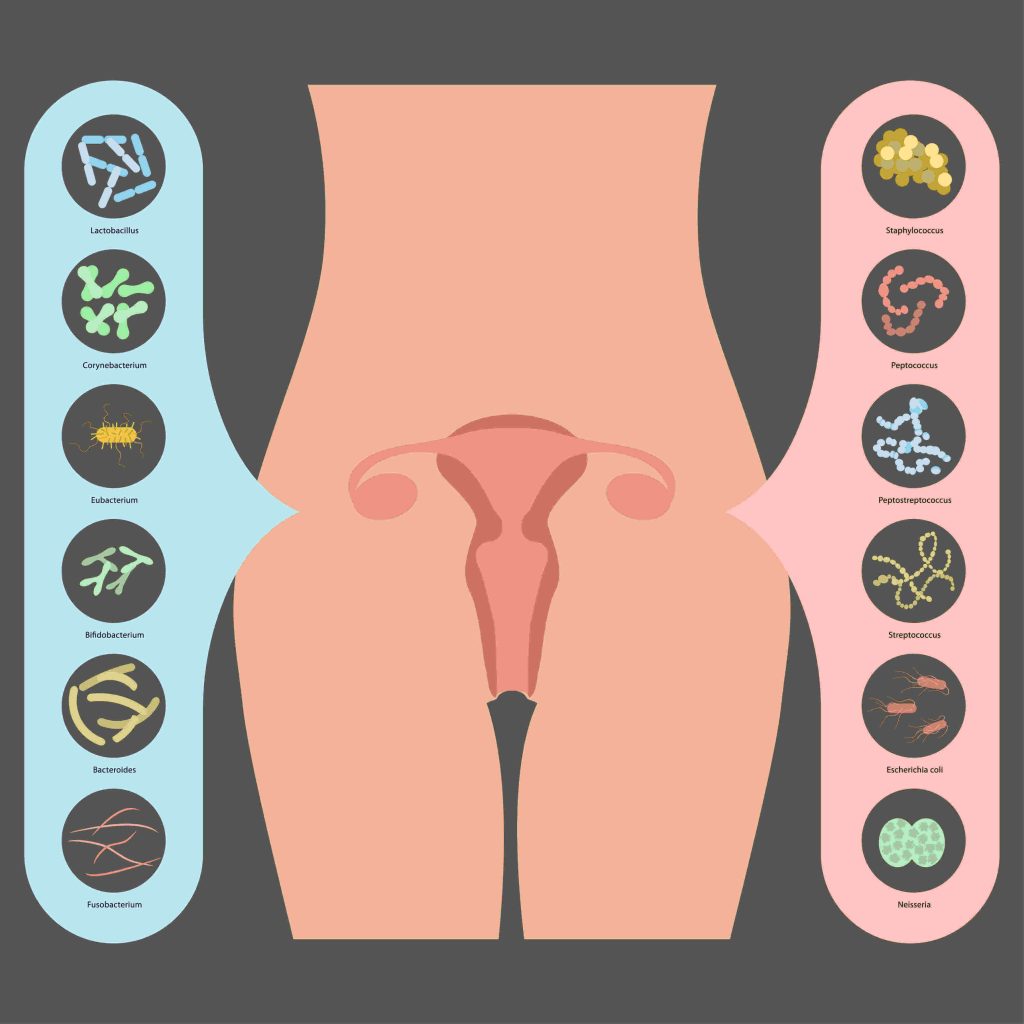
If it’s start itching, there’s a smell, which is different from the usual smell, and if the colour becomes- Greenish
- Frothy
- Grey
- Thick curdy
These are all abnormal.
70% of women, at least once in their lifetime, would have had a fungal infection. That is pretty common. And the symptoms would be, generally itchiness, thick curdy like discharge.Generally, it all goes down with the pH of the vagina, is it?
Dr Janani: Yes! So, keeping the vagina pH in balance in an acidic environment will maintain the normal flora.
So, anything that upsets that, causes the abnormal discharge.
Other than that, things like lubricant especially with perfumes or with certain flavours and spermicide, latex or with certain flavours and spermicide, latex can also cause abnormal discharge and cause disruption to the vaginal flora.
So, these also can cause discharge in women.Q2: Doctor, every time during my fertile period, I will always have discharge with some blood and it smells. May I know the causes and what should I do?
Dr Janani: During the fertile period, the middle of the cycle which is the ovulation period, so some women may have spotting during that time.
It is common. This is called ovulation bleed.
Some will, unfortunately, will have it together with pain like cramp-like sensation in the middle of the cycle and these are all normal.
So, the discharge will increase the physiological discharge. It will increase in the middle of the cycle.
And of course, for fertility reasons, the discharge is clear, watery and has a specific smell.
Everyone has their specific smells like a pheromones sort of thing. So, that is normal, it’s a normal vaginal smell.Q3: Can feminine wash help us to tackle the vaginal discharge and the itchiness that comes along with it? Because I feel like it’s not clean enough if I don’t use it.

Dr Janani: The vagina is self-cleansing. We don’t need to put anything inside the vagina to clean it.
That’s really not recommended. So, douching and all are not recommended.
Like I’ve mentioned the vaginal flora, the normal one will get disrupted if you put something inside and change the environment. Then, the bad bacteria will take over. No douching.
When they say they prefer to use feminine wash because they feel it’s not clean and causes itchiness, normally there shouldn’t be itchiness in the vagina.
So, if there’s itching, it sorts of means that there’s something wrong or there’s an infection.
So, go and see a doctor and get that sorted. You can use a certain feminine wash just externally.
We would just advise using a mild soap and water to wash the external part, which is the vulva and that would be adequate.Q4: What if we use a feminine wash that does not contain sulphates, parabens, alcohols and dyes inside it?

Dr Janani: Okay. That’s a good option. It’s more natural, it does not have these extra things in it.
That would make it a very mild wash and that should be fine. But then again, it’s only to wash the external parts and the other thing that’s important for female hygiene is to ensure that we wash from front to back.
Not back to front. Because most of the time, urinary tract infections that occur, short term UTI, in females, is usually due to bacteria from the gut.
From the back passage. So, please maintain certain hygienic practices such as this and washing after sexual intercourse, then it shouldn’t be any issues.
This kind of mild feminine wash is absolutely alright. Make sure it’s clean and dry before putting on your undergarments.Q5: Is it true that consuming yoghurt and pineapples are good for vaginal health? If yes, is it the plain one or can it be a flavoured one?

Dr Janani: There is no scientific basis to say that pineapples help in vaginal health.
From what I read, a lot of people think that it gives a good smell and taste.I’ve heard is pineapple; if you’re having cramps or such and if you want your period to be smooth, you should consume pineapple, so that it comes out smoothly and flows out.
Dr Janani: And that actually there’s not so much scientific evidence on that. But this with regards to vaginal health, and the smell and the discharge, apparently supposed to be sweeter with pineapples.
That’s the belief. But there’s no scientific evidence on that.
So, then we come back to the thing that your vagina is supposed to have that particular smell which is normal, which you’ll have during the mid-cycle which is specific for you and that is all good.
If it becomes smelly, fishy then you know that it’s an infection, Then, you should get it sorted.
I don’t think you need to be - Do not apply perfumes and anything scented because these will also disrupt the environment and cause infection.Right, so it’s important to keep it all natural. Natural as possible.
Dr Janani: Yes, that’s right.
People are saying that you should apply yoghurt to your feminine area as well as consuming it.
Dr Janani: Oh, no no no no no local application! Do not apply the yoghurt there. No! But, you can consume it. So, eating it, not putting it on there.Advice From Dr Janani

Parents, especially mums, make sure that you get your general gynae routine checkups yearly.
Even though you have no issues; for your pap smear and pelvic scans and a mammogram, so that you can make sure that you’re keeping yourselves well.
So, take care, stay safe and all the best!
https://www.youtube.com/watch?v=ip6jmRPP-6A
Thank you to Dr. Janani for such informative knowledge relating to our vaginal health. Mums, please remember that you should get the recommended yearly check-ups and scans for extra precaution and always, take a very good care of yourselves.
Throughout International Women's Month, we focus on women's health inside and out! Make sure to check out more videos relating to you and your family's health on AskMeDoctor!.
Stay tuned next time for more expert and doctors explaining all about your health.
Navigation
Our menu boxes are very flexible and easy to use




